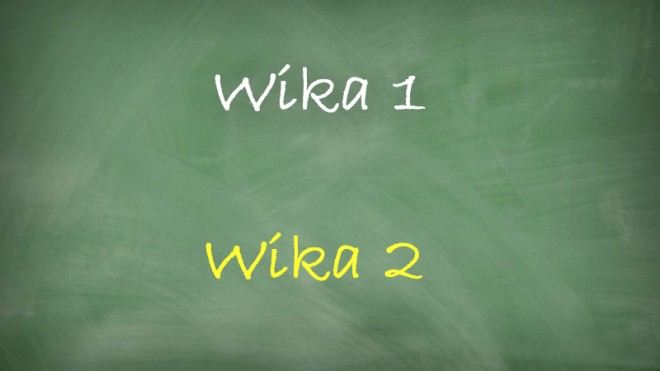Language: Math without numbers, systems building without Lego pieces
(Second of three parts)
We are proposing two core subjects, Wika 1 and 2, in the general education curriculum (GEC) for college. They deal with language as an integrative system and as a systems-building enterprise; they are not courses for learning Tagalog/Filipino or Philippine literature.
A key idea in the new GEC is holistic education through a multidisciplinary approach. The GEC introduces students “to different ways of knowing” and “to broad and wide-ranging understandings.”
In broad terms, a multidisciplinary approach examines issues in one discipline through the lens of various fields of study and reexamines the issues in reverse.
Human problems are products of the interplay of complex social and natural factors. An approach that integrates perspectives from different fields offers better solutions.
Aspects of language
Wika 1 will examine the contributions of related disciplines in explaining various aspects of the nature of language and its use.
Is language a uniquely human trait? What distinguishes human languages from animal forms of communication and artificial languages? Do we “learn” our first language (L1) or does it naturally manifest itself, like walking?
Does language shape the speakers’ world view? Does the critical period hypothesis apply to second languages as well? Is it better to learn through one’s L1 or through a language of wider communication like English? Why do people go to war over language?
On a personal level, Wika 1 will alert students to the ways language is used to persuade or to manipulate, to dominate and control, and to make or destroy identities.
Understanding the puzzle
Various disciplines have contributed pieces in understanding the puzzle of language. The relationship is not one-way.
Language serves as a primary source of data in many disciplines: sociology, psychology, culture, philosophy, criminology, politics and the law, mind and brain sciences, and human migration (language data confirmed that maritime Madagascar in the African continent was settled by migrants from our part of the world).
Wika 1 will deal with how these various fields are enriched with language data. Students will emerge with sensitivity to and experience in crafting holistic and integrative explanations, and, at the very least, with scientific knowledge that will help them make informed statements on language issues.
The new GEC is about education for innovation in the 21st century. The mantra at the global stage, and increasingly at the personal level, is “Innovate or perish.” The key to innovation is the ability to (re)build “things.”
Systems-building
The GEC aims to prepare students “to think innovatively, and to create solutions to problems.” And yet, conspicuously missing is the one course that prepares the mind for innovation: a course on examining system flaws and (re)building systems.
The second GEC course, Wika 2, is a systems-building course.
Doing well in many endeavors today depends on harnessing “think big” ideas. But with big ideas come massive data. Making sense of this massive data requires an organizing theory and a series of models to test the theory.
Out of this will emerge a well-defined system that describes how the underlying mechanism works. Without this understanding, there can be no assessment of flaws, no innovation, and without innovation, no progress.
Like the objects of inquiry of the physical sciences (the solar system, for example), language is a (layered) system.
Investigation methods
Discovering the properties of this complex system follows the methods of empirical investigation: From observations, a theory is formulated, which is repeatedly validated internally with more data until contradictory evidence knocks it down, or it collapses under the weight of layers and layers of patches to a weak foundation.
Language as an empirical object of study has two advantages over the physical sciences.
First, language data is straightforwardly accessible. While physics and chemistry experiments require laborious setup of expensive apparatus to generate data, testing a language hypothesis merely engages the experimenter to reflect on knowledge of his language. Thus the “test-revise-gather data” cycle iterates quickly.
The steps are similar to product development: gather usability data, revise model/prototype, product. For gaining experience in systems building, language is an ideal playground.
‘Imperfection’
Language offers an advantage that no physical or mathematical system would dare be associated with: “imperfection.” Language is a “good enough system for the purpose,” an optimal system. It does not achieve the perfection of mathematical systems.
Superimposed on top of the underlying deterministic component are speaker innovation in response to functional pressures; as a result, language is always in a process of accommodation.
The study of this “good enough system” confers an advantage because the biological and human systems the students will encounter in later years are similarly optimal.
Language is mathematics without the numbers, systems modeling without the Lego pieces. Language is an exemplary training ground to build generalized abstract systems. This prepares students in their quest for specialized solutions in their chosen fields.
Wika 1 will introduce students to a multidisciplinary, evidence-based and argument-driven approach to language study. Wika 2 will teach them how to make systems work better.
Editor’s Note: Dr. Resty M. Cena (restycena@gmail.com), Dr. Ricardo Ma. Nolasco (rnolascoupdiliman@gmail.com) and Dr. Isabel Pefianco Martin (mmartin@ateneo.edu) are practicing Filipino linguists and educators.
FIRST PART OF SERIES
